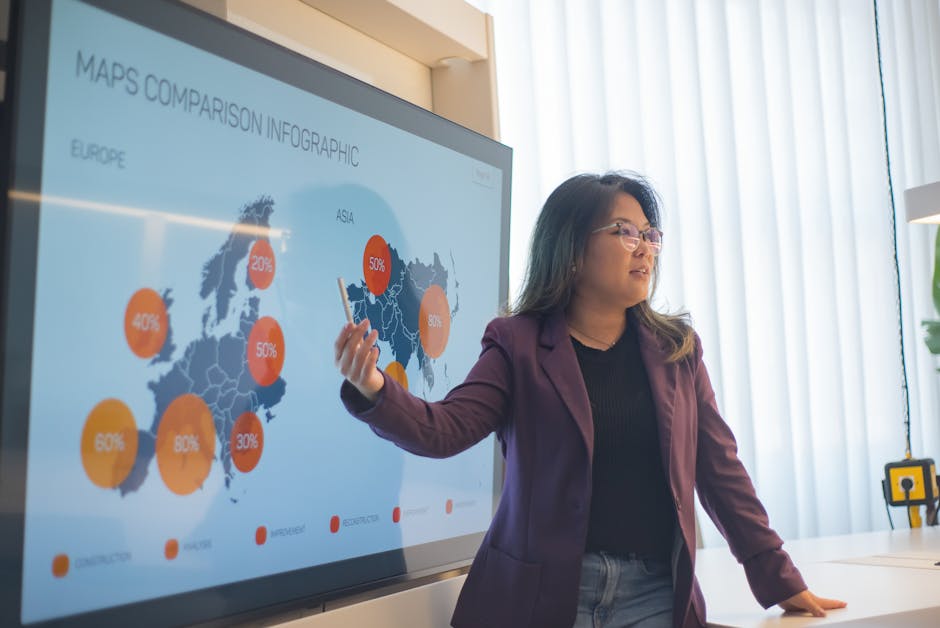Trends in International Development Work: What You Need to Know
When it comes to international development work, the landscape is constantly evolving. From new approaches to changing priorities, staying informed about the latest trends is crucial for anyone involved in this field. In this article, we will explore some of the key trends shaping international development work today and what they mean for you.
Embracing Technology for Impact

One of the most significant trends in international development work is the increasing reliance on technology to drive impact. From mobile apps that help farmers access market prices to data analytics for tracking progress in healthcare programs, technology is revolutionizing how development projects are implemented and monitored.
For example, in rural communities in Africa, mobile money services like M-Pesa have transformed the way people access financial services, enabling greater financial inclusion and economic empowerment. By harnessing the power of technology, development organizations can reach more people, collect better data, and ultimately achieve greater impact.
Building Partnerships for Sustainable Change

In recent years, there has been a shift towards more collaborative and inclusive approaches to international development work. Instead of working in isolation, organizations are increasingly partnering with local communities, governments, and other stakeholders to create sustainable solutions to complex challenges.
For instance, the United Nations Sustainable Development Goals (SDGs) emphasize the importance of partnerships in achieving global development targets. By bringing together diverse actors from different sectors, these partnerships can pool resources, expertise, and networks to tackle issues like poverty, inequality, and climate change more effectively.
Putting a Focus on Local Ownership and Empowerment

Another key trend in international development work is the growing recognition of the importance of local ownership and empowerment. Instead of imposing top-down solutions, development organizations are increasingly involving local communities in decision-making processes and building their capacity to lead their own development efforts.
For example, organizations like BRAC in Bangladesh have been successful in empowering women through microfinance programs, enabling them to start their own businesses and improve their livelihoods. By investing in local leadership and expertise, development projects are more likely to be sustainable and have long-term impact.
Adapting to Climate Change and Environmental Challenges

As the impacts of climate change become more severe, international development work is increasingly focused on building resilience and adapting to environmental challenges. From implementing sustainable agriculture practices to promoting renewable energy solutions, development organizations are incorporating climate-smart approaches into their projects.
For instance, in coastal communities vulnerable to rising sea levels, organizations are working with residents to develop early warning systems and build resilient infrastructure to mitigate the impacts of climate change. By integrating climate considerations into development planning, projects can better address the needs of vulnerable populations and contribute to a more sustainable future.
Ensuring Accountability and Transparency
Finally, a key trend in international development work is the increasing emphasis on accountability and transparency. Donors, governments, and development organizations are under growing pressure to demonstrate the impact of their investments and ensure that resources are used efficiently and effectively.
For example, initiatives like the International Aid Transparency Initiative (IATI) aim to improve the transparency of aid flows and make information on development projects more accessible to the public. By holding stakeholders accountable and promoting greater transparency, the development community can build trust, foster collaboration, and drive positive change.
Practical Tips for Getting Involved
Now that you’re up to speed on the latest trends in international development work, you may be wondering how you can get involved. Here are a few practical tips to help you make a difference:
- Stay informed: Keep up-to-date with the latest research, reports, and news in the field of international development.
- Volunteer: Consider volunteering with local or international organizations to gain firsthand experience and make a direct impact.
- Advocate: Use your voice to raise awareness about important global issues and advocate for policies that promote sustainable development.
- Donate: Support reputable organizations and projects that align with your values and have a track record of making a positive impact.
By staying informed, getting involved, and advocating for positive change, you can play a vital role in shaping the future of international development work. Together, we can work towards a more equitable, sustainable, and prosperous world for all.




